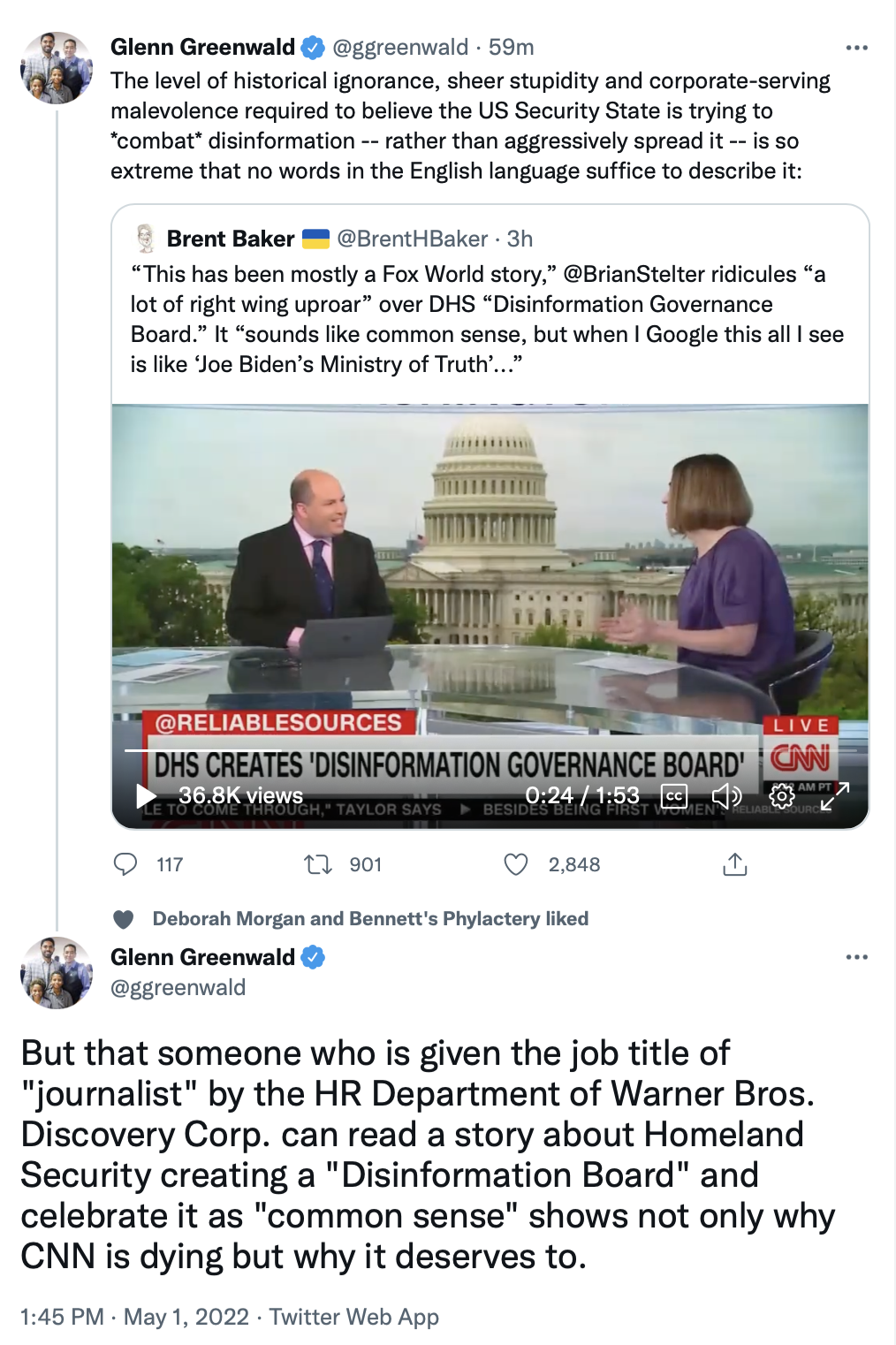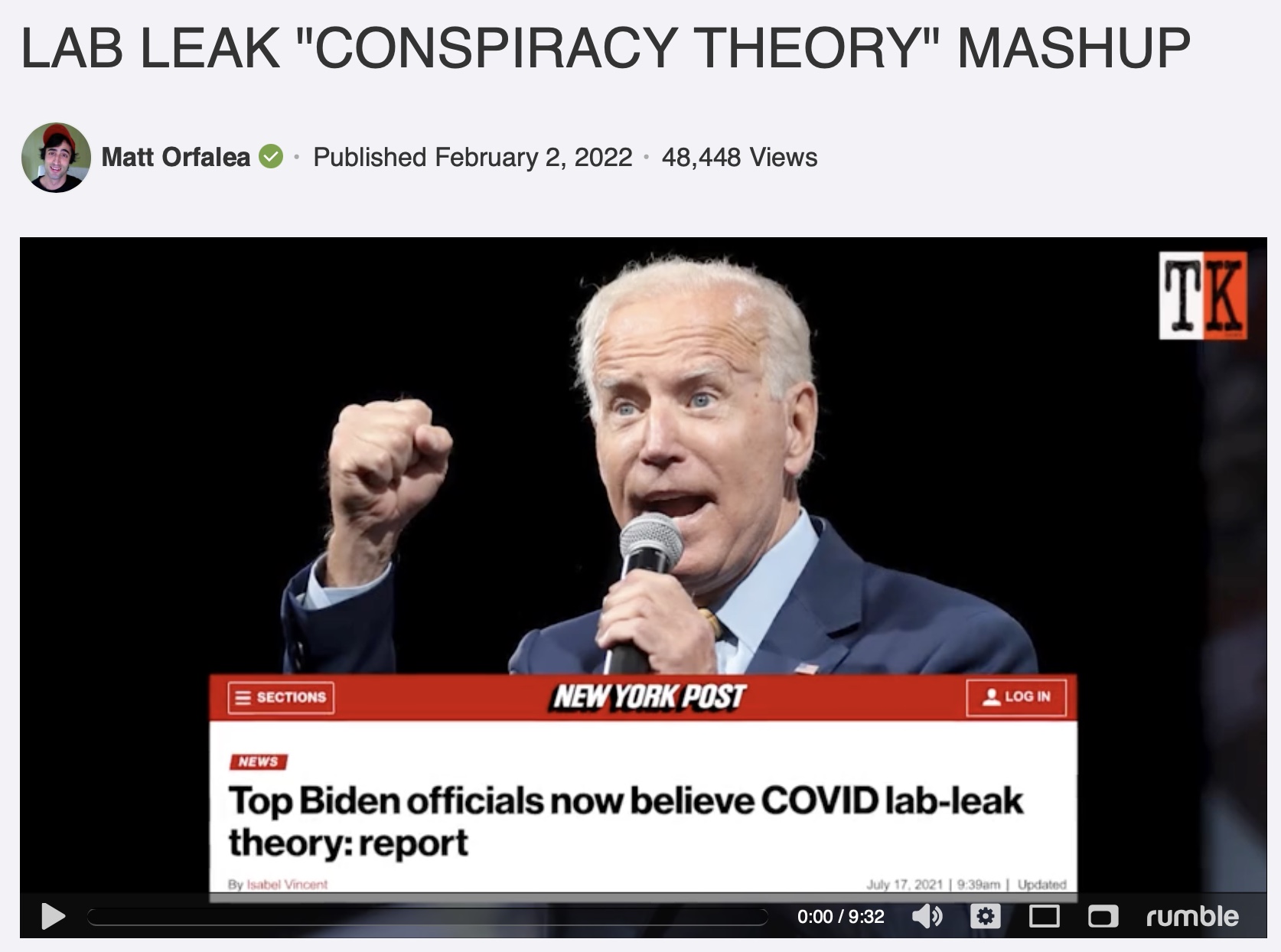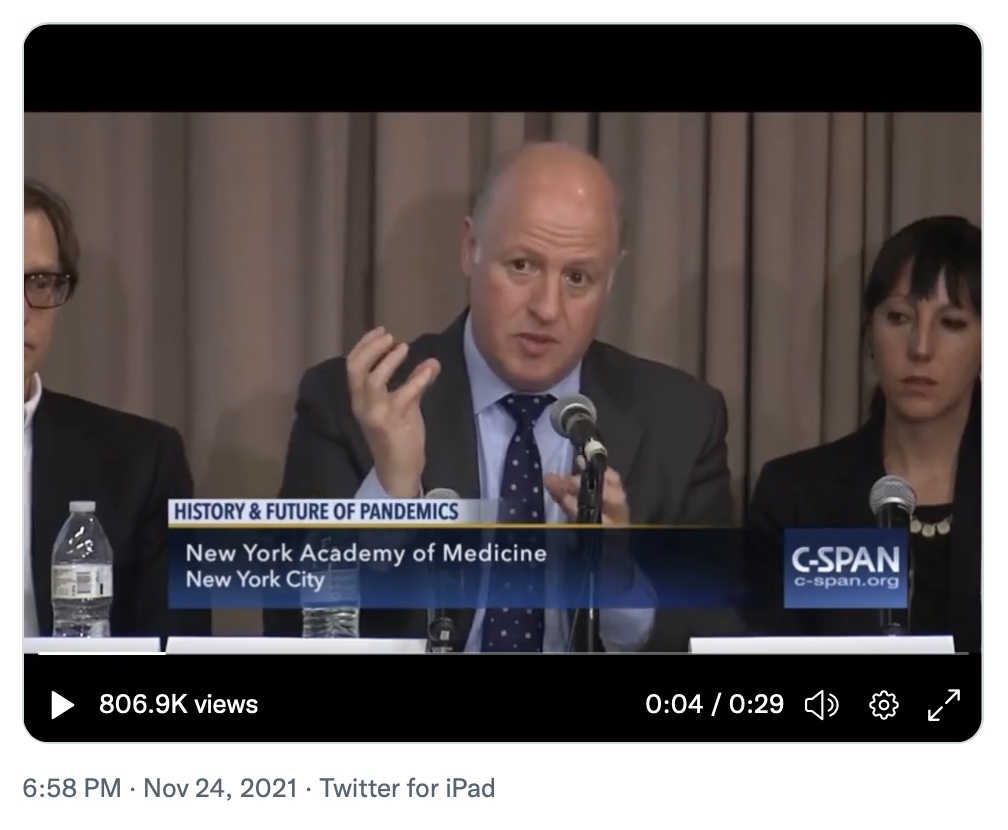BW: The criticism that I hear a ton in response to what you're saying is: David, these are private companies. If I invent YouTube and I pay for the servers of YouTube and I've set up the whole architecture of the company, why can't I do what I want? Same with Facebook. Why don't I get to decide that I don't want some kind of clickbait or fake news or whatever on my thing? I'm going to police it. Who are you to tell me I can't?
DS: I think it's a very disingenuous argument. The same people who say that these social media companies, these big tech companies, should be free to do whatever they want because they're private companies are the same people pushing six bills through Congress right now to restrict and regulate those companies because they see them as monopolies. So they don't even believe their own argument. They all start making these libertarian arguments when these big tech companies are restricting speech in a way that they like. When they agree with the outcome, they want to give these companies the freedom to produce that outcome.
We need to fundamentally understand that free speech in our society has been privatized. The town square has been privatized. When the Constitution was written, the internet didn't exist. Back then, the town square was a physical place that you could go to, and there was a multiplicity of town squares all over the country. There were thousands of them and anybody could put their soapbox down and speak, and anyone could gather around and listen. That’s why, if you look at the First Amendment, it doesn't just protect freedom of speech and of the press. It also protects the right to peaceably assemble.
Well, where do people assemble today? They assemble in these giant social networks that have these gigantic network effects. That is where speech, especially political speech, occurs. And if you are shut out of that digital town square, to what extent do you still even have a First Amendment? To what extent do you have a right to speech? Well, I don't think you do. If you were to grab your soapbox today and go on the courthouse steps, they'll think you're a lunatic. You have no free speech right in this country if you are kicked off of these social networks.
So, I don't think it's good enough to say, well, these are private actors and, therefore, they can do whatever they want. Those private actors have too much power. They have the power to decide whether you, as an American, have an effective free speech right in this country. I think that's unacceptable. I think the Founders, the Framers of the Constitution, would never have permitted that.
...
BW: What do you say to the people who argue: If you don't like the way YouTube conducts itself, if you don't like the way Facebook conducts itself, no problem. Go make another one. Why is that not an acceptable solution to this problem?
DS: This is what you heard when Twitter and Facebook banned Trump. Their argument was: Go to a different app. And then Apple and Google banned Parler, which was the different app. And then the argument was, Well, that's not censorship. Just go create a website. And then Amazon Web Services started banning websites. So, at some point, when are you going to say this is an undue imposition on free speech? What am I supposed to do? Go create my own internet? All I wanted to do was post a tweet. Let’s not be obtuse to the power of these monopolies. I think people are being selectively oblivious to the network effects.
BW: We hear that phrase a lot: network effects. What does it mean?
DS: A network-effect business is one where the value of the service increases with the number of users. So if you think about Twitter or Facebook or the phone company, the more people who are on the service, the more value it has to everybody else. The value actually increases exponentially because the number of connections that can be made increases exponentially every time someone joins the service. If you or I want to create our own Twitter clone, it'll be very, very hard to do that because nobody else will be on it. So you have this huge chicken and egg problem. This is why these social networks are so powerful. They’ve got these huge network effects based on the fact that everybody is already on them, and it gets very, very hard to try and create a competing one.



